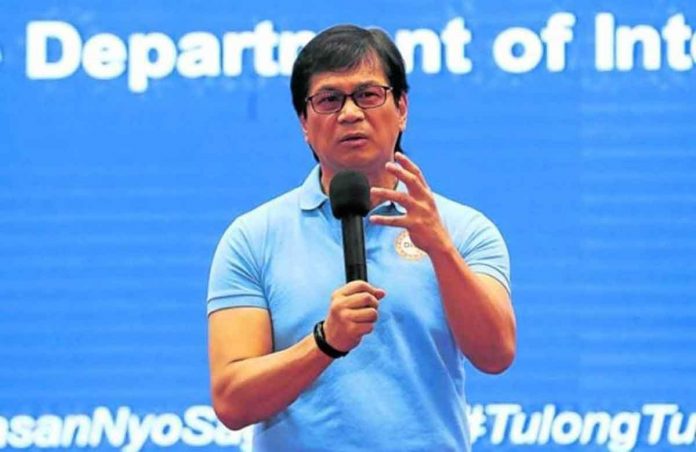
MANILA — Some top Philippine National Police officials are having second thoughts about heeding Interior Secretary Benhur Abalos’ appeal to voluntarily step down to pave the way for the government’s campaign to rid the organization of policemen with links to illegal drugs.
In a phone interview with reporters on Wednesday, PNP spokesperson Police Col. Jean Fajardo said that out of the 956 police generals and colonels who were expected to submit courtesy resignations, around 70 percent or more than 600 had already complied as of Tuesday evening. According to Fajardo, they were hoping that the rest would follow suit by the end of the month.
“We cannot deny that there are some senior officers who have reservations [about] submitting their courtesy resignation,” she said, adding that some had questioned the need for it when those with possible links to the illegal drug trade had already been identified.
“We cannot deny that if one or two PNP personnel are identified and [discovered to be] involved in illegal drugs, [they are not the only ones] being implicated in illegal drug activities, but it is the whole organization,” Fajardo said.
“Once and for all, we need to step up and take the lead of making the supreme sacrifice of submitting our courtesy resignation,” she stressed.
PNP chief Gen. Rodolfo Azurin Jr., who was among the first officers to comply with Abalos’ directive last week, acknowledged that there were those who were apprehensive or even opposed to the move.
In a white paper he said he had read, a number of the so-called “innocent third-level officers” also called for his resignation, saying the resurgence of “ninja cops” — police officers involved in the recycling of illegal drugs seized in legitimate operations — and high-ranking officials involved in drug trading had happened during his term.
According to Azurin, he was willing to go “the extra mile” by sitting down with the hesitant senior police officers “to let them feel and explain to them personally the intention of this call for courtesy resignation.”
Earlier, he said that only “less than 10 police officials” were on the “narco list” although he did not identify them. The PNP also did not confirm if any of them had already tendered their courtesy resignation.
Bad timing?
Abalos said that he expected the five-man committee, which would evaluate the records of those who had complied with his appeal, to be done in two to three months. This would be in time for Azurin’s retirement on April 24 and the naming of a new PNP chief.
Critics earlier opposed the move, saying it could lead to the demoralization of the police force. Others said it was bad timing because of the sudden change in the leadership of the Department of National Defense, which oversees the military, following the resignation of its officer in charge, Jose Faustino Jr.
But the PNP asked the public to “trust the process” and to allow the screening committee to do its job. In a previous TV interview, Abalos said that the number of police officials who had tendered their courtesy resignation was a welcome development and an assurance that the police force remained united.
“There is no demoralization within the ranks of the PNP. In fact, they welcome this development because they, too, would like the police organization to be rid of misfits and scalawags,” he added. He clarified that the resignations would not affect the PNP’s performance of its duties since these would take effect only once accepted by the President.
“The public should not be afraid that there would be disruption of services. There is no leadership vacuum at all in the PNP,” Abalos said. (Dexter Cabalza © Philippine Daily Inquirer)






